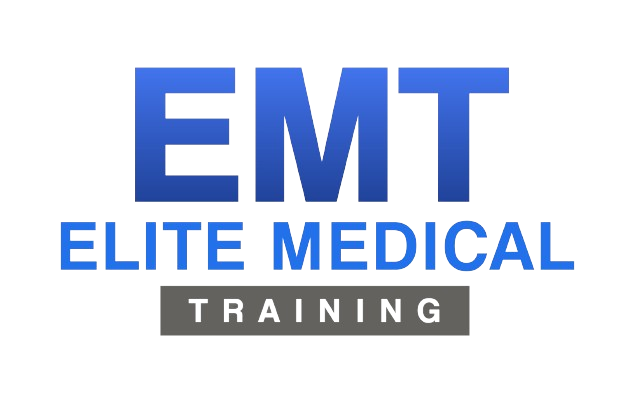Heart attacks are one of the most deadly and common diseases. Not only do they cause death, but they also debilitate survivors for an extended period. In this blog post, we will discuss 10 signs that might indicate you are experiencing the signs of a heart attack and what to do if you think you or someone else are having one!
10 Main Signs of a Heart Attack
Recognizing the main signs of a heart attack is crucial for prompt medical attention and potentially saving lives. These symptoms vary in intensity and may occur individually or in combination. It’s important to remember that not all heart attacks present the same way, and some individuals may experience atypical symptoms.
1. Unresponsiveness
Unresponsiveness refers to a state where an individual does not respond to external stimuli or does not display normal levels of consciousness. In the context of a heart attack, unresponsiveness can occur due to reduced blood flow and oxygen to the brain. It is a serious sign that necessitates immediate medical attention.
2. Chest pain or pressure
Chest pain or pressure is one of the most common and recognizable signs of a heart attack. It is often described as a tight, squeezing, or heavy sensation in the chest. The pain may radiate to the left arm, shoulder, jaw, or back. It must be noted though that chest pain can have various causes, but when it accompanies other heart attack symptoms, it should not be ignored.
3. Shortness of breath
Feeling breathless or having difficulty breathing can be a symptom of a heart attack. It occurs because the heart’s reduced pumping capacity fails to provide sufficient oxygenated blood to the body. Shortness of breath can be sudden or develop gradually and may worsen with physical activity.
4. Weak pulse and/or fainting
During a heart attack, the heart’s ability to pump blood effectively may be compromised, leading to a weak or irregular pulse. Fainting or losing consciousness can occur as a result of reduced blood flow to the brain. These signs of a heart attack indicate a severe cardiac event and require immediate medical attention.
5. Confusion, trouble speaking, or unresponsiveness in general
The brain relies on a constant supply of oxygenated blood to function correctly. When a heart attack occurs, and blood flow to the brain is interrupted, it can result in confusion, difficulty speaking, or a general state of unresponsiveness. These neurological symptoms should be taken seriously and addressed urgently.
6. Severe chest pain with nausea and vomiting
In some cases, a heart attack may cause severe chest pain accompanied by nausea and vomiting. These signs of a heart attack can be particularly distressing and may be indicative of a more severe cardiac event. It is crucial to seek immediate medical assistance to determine the cause and receive appropriate treatment.
7. Abnormal breathing patterns (shallow breaths, gasping for air)
When a heart attack happens, the body’s oxygen supply may be compromised, leading to abnormal breathing patterns. Shallow breaths or gasping for air can occur as the body attempts to compensate for the reduced oxygen levels. These breathing abnormalities often accompany other symptoms of a heart attack and should not be ignored.
8. Dizziness
Feeling lightheaded, dizzy, or experiencing a sensation of unsteadiness can be another one of the signs of a heart attack. It occurs due to inadequate blood supply to the brain. Dizziness may be accompanied by other symptoms such as chest pain or shortness of breath, and it should be evaluated by a medical professional promptly.
9. Painful jaw
Jaw pain can be a less common but significant symptom of a heart attack, particularly in women. The pain may radiate from the chest to the jaw or occur independently. Jaw pain during a heart attack is often described as aching or pressure-like and may be accompanied by other symptoms like chest pain or shortness of breath.
10. Faintness
Feeling faint or experiencing a sensation of impending fainting can occur during a heart attack. Reduced blood flow to the brain can lead to lightheadedness and a feeling of weakness. Fainting can follow, which is a critical sign of a heart attack that necessitates immediate medical attention. If someone experiences faintness or witnesses someone else fainting, emergency medical assistance should be sought without delay.
If you or anyone you know is experiencing these symptoms, it is important to call 911 or your doctor. Always follow medical advice from your doctor.
What to do if you are experiencing a heart attack?
- Stop whatever you are doing and stay calm as much as possible
- Don’t panic as panicking will only worsen the situation by raising your heart rate
- If you are alone during a heart attack, do not put pressure on your chest
- Go to a comfortable place where you can rest and sit down
- Call for emergency medical help without delay
- While waiting for help to arrive, take an aspirin as advised by your physician or responder
What should you do in case someone is having a heart attack?
- Call for help immediately and ask if the person needs an ambulance
- Stay with them until help arrives as long as they remain conscious
- If you are trained in CPR, start CPR and continue until professional help arrives or the person is breathing
- Be sure to avoid touching anything around their mouth, nose, eyes, ears, neck
- Don’t give them aspirin because it can cause serious problems for those who are having a heart attack (unless instructed by an emergency responder)
Remember, it is always best to be preventative in these types of situations! If you are interested in becoming CPR or First Aid Certified, contact Elite Medical Training today! Their team offers a variety of life-saving certification courses so you can save a life. To learn more, visit our site at elitemedicaltraining.com.

